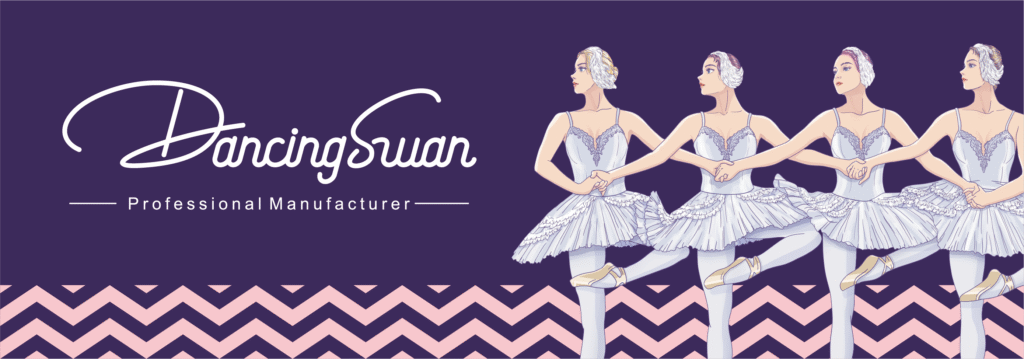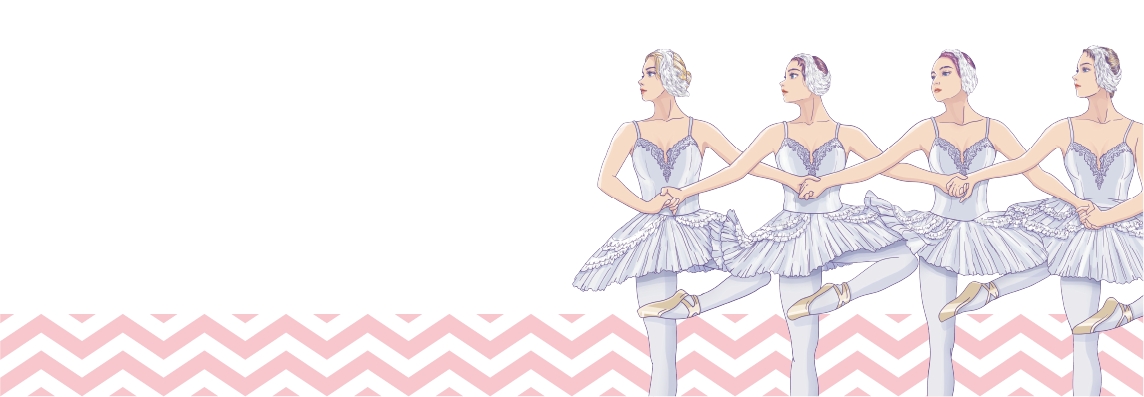Eyelash itching can be an irritating and persistent problem, often disrupting daily comfort and even affecting eye health. Whether caused by allergies, infections, or improper eyelash care, understanding the triggers and solutions is essential for effective relief.
This comprehensive guide explores the most common causes of eyelash itching, from allergic reactions to makeup products and seasonal irritants to underlying conditions like blepharitis and Demodex mite infestations. Learn how to identify the root cause of your discomfort, as well as practical home remedies and medical treatments that can soothe and prevent future irritation.
Additionally, discover when persistent eyelash itching requires professional attention, ensuring timely intervention for more severe cases. By addressing the issue properly, you can maintain healthier, itch-free lashes and enjoy clearer, more comfortable vision.
What Causes Eyelash Itching? Common Triggers Explained
Eyelash itching can be an annoying and uncomfortable problem, often making you want to rub your eyes—an action that could worsen the irritation. Understanding the root causes can help you find relief and prevent further discomfort. Here are some common triggers that might be behind your itchy eyelashes.
1. Allergies
Allergic reactions are among the most frequent causes of eyelash itching. Common allergens include pollen, dust mites, pet dander, mold, and certain cosmetics like mascara or eyeliner. When allergens come into contact with your eyelashes or eyelids, your immune system reacts, leading to inflammation and itching.
Solution: Identify and avoid allergens whenever possible. Switch to hypoallergenic or fragrance-free eye products, and consider antihistamine eye drops if needed.
2. Blepharitis
Blepharitis is an inflammation of the eyelids caused by bacterial overgrowth, clogged oil glands near the lash line, or skin conditions like seborrheic dermatitis. Symptoms include redness, swelling, flaky skin around the lashes, and persistent itching.
Solution: Maintain good eyelid hygiene by gently cleansing the area with warm water and a mild cleanser. In severe cases, your doctor may prescribe antibiotic ointments or steroid drops.
3. Dry Eyes
Insufficient tear production can lead to dry, irritated eyes and itchy eyelashes. Environmental factors like dry air, prolonged screen time, or certain medications can exacerbate the condition.
Solution: Use artificial tears or lubricating eye drops. Incorporate humidifiers in dry environments, and take breaks during prolonged screen use.
4. Contact Lenses
Wearing contact lenses for extended periods or improper cleaning can cause irritation around the eyelashes. Protein deposits, bacteria, or improper fit may trigger itching and discomfort.
Solution: Follow proper lens hygiene, replace your contacts as recommended, and switch to daily disposables if irritation persists.
5. Demodex Mites
These microscopic parasites naturally live on human skin and hair follicles, including eyelashes. However, an overgrowth of Demodex mites can lead to itching, redness, and crusting around the lash line.
Solution: Tea tree oil-based cleansers can help eliminate mites. Severe cases may require medicated treatments prescribed by a doctor.
6. Makeup Residue & Poor Hygiene
Sleeping with eye makeup or using expired products can clog hair follicles and irritate the eyelashes. Harsh makeup removers can also strip natural oils, causing dryness and itching.
Solution: Always remove makeup before bed with a gentle cleanser, and replace eye cosmetics every 3–6 months.
7. Infections (Styes & Conjunctivitis)
Bacterial or viral infections like styes (red, painful lumps near the lash line) or conjunctivitis (pink eye) can cause significant itching along with other symptoms such as discharge or swelling.
Solution: Seek medical treatment for infections. Warm compresses can soothe styes, while antibiotics may be needed for bacterial conjunctivitis.
When to See a Doctor
If home remedies don’t relieve your eyelash itching, or if you notice severe swelling, pus, or vision changes, consult an eye specialist. Persistent itching could indicate an underlying condition needing professional care.
By pinpointing the cause of your eyelash itching, you can take steps to alleviate discomfort and keep your eyes healthy. Simple changes in hygiene habits or product choices can often make a big difference.
How to Stop Eyelash Itching: Effective Remedies and Treatments
Eyelash itching can be uncomfortable, distracting, and sometimes even painful. Whether caused by allergies, infections, irritants, or poor hygiene, the good news is that there are several remedies and treatments to alleviate the discomfort. Below, we explore the most effective solutions to stop eyelash itching and restore comfort.
1. Identify the Cause
Before treating eyelash itching, it’s crucial to determine the underlying cause. Common triggers include:
- Allergies: Reactions to makeup, pollen, or skincare products.
- Blepharitis: Inflammation of the eyelids due to bacteria or clogged oil glands.
- Dry Eyes: Insufficient tear production leading to irritation.
- Contact Lenses: Improper use or sensitivity to lens solutions.
- Eyelash Extensions: Glue allergies or poor aftercare.
Consulting an eye specialist can help pinpoint the exact cause and tailor treatment accordingly.
2. Maintain Proper Eyelid Hygiene
Keeping your eyelids clean is essential to prevent and relieve itching. Follow these steps:
- Wash Gently: Use a mild, fragrance-free cleanser or baby shampoo to clean the eyelid margins.
- Warm Compress: Apply a warm, damp cloth to the eyes for 5–10 minutes to loosen debris and soothe irritation.
- Avoid Touching: Refrain from rubbing your eyes, as this can worsen irritation.
3. Use Hypoallergenic Products
If allergies trigger your eyelash itching, switch to hypoallergenic makeup, removers, and skincare products. Look for labels like “paraben-free,” “fragrance-free,” or “ophthalmologist-tested” to minimize reactions.
4. Apply Natural Remedies
Several natural ingredients can help soothe irritated eyelids:
- Coconut Oil: Has anti-inflammatory and moisturizing properties—apply a small amount to the lash line.
- Aloe Vera: Soothes itching and reduces redness—use pure gel from the plant.
- Cucumber Slices: Cool cucumber reduces puffiness and irritation when placed over closed eyes.
5. Try Over-the-Counter Treatments
For persistent itching, consider these OTC solutions:
- Artificial Tears: Lubricate dry eyes and relieve itching caused by dehydration.
- Antihistamine Eye Drops: Help with allergy-related itching (check for redness-reducing additives, which may worsen dryness).
- Eyelid Wipes: Medicated wipes with ingredients like tea tree oil can reduce bacterial buildup.
6. Avoid Eyelash Extensions or False Lashes
If you suspect that extensions or false lashes are causing irritation, take a break from them. The adhesive can trigger allergic reactions, and improper application may lead to infections.
7. Seek Medical Attention
If itching persists despite home remedies, consult a doctor. They may prescribe:
- Antibiotic Ointments: For bacterial infections like blepharitis.
- Steroid Drops: For severe inflammation or allergic reactions.
- Oral Antihistamines: For chronic allergy-related itching.
Conclusion
Eyelash itching is often manageable with proper hygiene, gentle products, and targeted treatments. If symptoms worsen or persist, professional medical advice ensures the right diagnosis and treatment. By taking proactive steps, you can enjoy healthy, itch-free lashes.
Eyelash Itching and Allergies: Identifying the Culprits
Dealing with eyelash itching can be both uncomfortable and distracting. While occasional itching is normal, persistent irritation often indicates an underlying allergy or sensitivity. Identifying the root cause is the first step toward relief and healthier lashes.
Common Causes of Eyelash Itching
Several factors can contribute to itchy eyelashes, including:
- Makeup Allergies: Mascara, eyeliners, and false lash adhesives often contain ingredients like parabens, dyes, or formaldehyde releasers that can trigger allergic reactions.
- Eye Infections: Conditions like blepharitis (eyelid inflammation) or conjunctivitis can lead to irritation and itching along the lash line.
- Contact Dermatitis: Using new skincare products, eyewear, or even pillowcases treated with harsh chemicals can irritate the sensitive skin around the eyes.
- Seasonal Allergies: Pollen, dust, and pet dander can cause itchy eyelids and lashes, especially during allergy season.
How to Identify the Allergen
Pinpointing the exact cause of eyelash itching involves careful observation:
- Track Symptoms: Note when the itching occurs—whether after applying makeup, during certain seasons, or after using new products.
- Patch Testing: If you suspect a makeup allergy, try avoiding products for a few days or apply a small amount behind your ear to check for reactions.
- Consult a Specialist: Dermatologists or allergists can perform tests to identify specific allergens affecting your eyelids and lashes.
Prevention and Relief
Once the culprit is identified, take these steps to prevent further irritation:
- Switch to Hypoallergenic Products: Opt for fragrance-free, ophthalmologist-tested mascaras and eye makeup.
- Clean Your Lashes Daily: Use a gentle cleanser to remove buildup and potential allergens.
- Avoid Rubbing: Scratching can worsen irritation—apply a cool compress instead for temporary relief.
- Take Antihistamines: For seasonal allergies, oral or eye-drop antihistamines can reduce itching.
When to See a Doctor
If symptoms persist despite eliminating potential allergens, consult a healthcare provider. Persistent itching, redness, or swelling could indicate an infection or chronic condition requiring medical treatment.
By identifying and avoiding allergens, adopting gentle eyelash care habits, and seeking professional help when needed, you can keep eyelash itching at bay and maintain healthy, comfortable eyes.
When to See a Doctor for Persistent Eyelash Itching
Eyelash itching can be annoying but is usually harmless and temporary. However, if the itching persists for more than a few days or is accompanied by other symptoms, it may indicate an underlying issue that requires medical attention. Knowing when to see a doctor can help prevent complications and provide relief faster.
Signs You Should See a Doctor
Here are key symptoms and situations where consulting a healthcare professional is recommended:
- Severe or Prolonged Itching: If the itching lasts longer than a week despite using over-the-counter remedies, it’s time to seek medical advice.
- Redness and Swelling: Persistent redness, swelling, or irritation around the eyelids may indicate an infection or allergic reaction.
- Crusting or Discharge: If you notice yellow or green discharge, crusting, or flakes at the base of your lashes, it could signal blepharitis or a bacterial infection.
- Loss of Eyelashes: Excessive eyelash loss along with itching may point to an underlying condition, such as a fungal infection or autoimmune disorder.
- Pain or Sensitivity: If the itching is accompanied by pain, burning, or increased sensitivity to light, consult a doctor immediately.
- No Improvement with Home Care: If antihistamines, warm compresses, or hypoallergenic products don’t alleviate symptoms, professional evaluation is necessary.
Possible Causes of Persistent Eyelash Itching
A doctor can help diagnose the root cause of your eyelash discomfort, which may include:
- Blepharitis: Inflammation of the eyelids often caused by bacterial overgrowth or skin conditions like seborrheic dermatitis.
- Allergic Reactions: Allergies to makeup, skincare products, or environmental irritants can trigger persistent itching.
- Demodex Mites: Tiny parasites living in hair follicles may cause itching and irritation if they overpopulate.
- Eye Infections: Bacterial, viral, or fungal infections (such as styes or conjunctivitis) often cause itching alongside other symptoms.
- Contact Dermatitis: A reaction to allergens or harsh chemicals in cosmetics and cleansers.
What to Expect During a Doctor’s Visit
During your appointment, your doctor may:
- Examine your eyelids, lashes, and eye surface for signs of infection or inflammation.
- Ask about your skincare routine, recent product changes, or exposure to allergens.
- Take a swab or scraping if an infection or mite infestation is suspected.
- Prescribe medicated ointments, antibiotics, or antihistamines based on the diagnosis.
Final Thoughts
While occasional eyelash itching is common, persistent or severe symptoms should not be ignored. Early medical intervention can prevent complications and help restore comfort. If home remedies fail or your condition worsens, schedule an appointment with an eye specialist for proper diagnosis and treatment.

